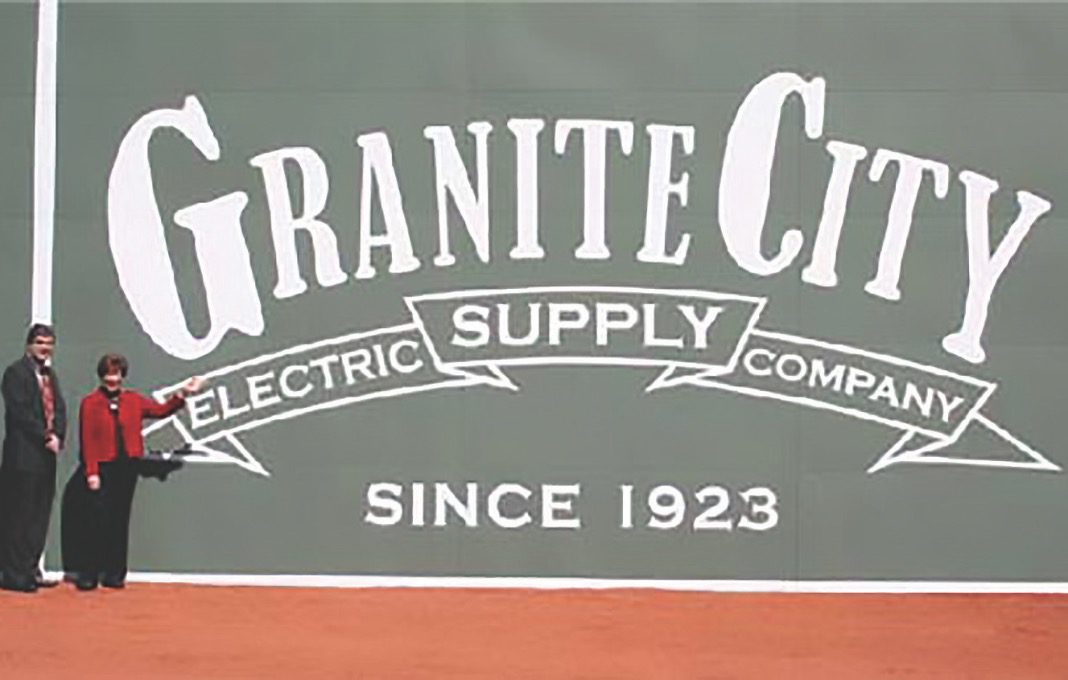Companies Of A Century: Granite City Made A Habit Of Choosing The Customer


Editor’s Note: Chief Executive is kicking off a new annual tradition this year by celebrating every sizable (over $100 million in annual revenues) standalone company turning 100 in 2023. Check out the rest of this year’s class for tips, insights and, above all else, the inspiration you need to keep going….and going.
HQ: Quincy, Massachusetts
Revenues: ~$300 million
Employees: 200+
The past 100 years have not been kind to regional distributors. Amid economic gyrations, the advance of superstores and e-commerce gobbling up market share, surviving is no easy feat. So, how does electrical supply company Granite City Electric manage it? “Culture,” says Phyllis Godwin, who ran the company her father, Nicholas Papani, founded and ran for 50 of its 100 years. “And to understand the culture of the company, you have to understand my father.”
At 16, alone and with just a second-grade education, Papani immigrated to America from Italy in the hope of finding paying work. When World War I started, he joined the Army, where he spent the war playing clarinet in the Army band. His service earned him two gifts from the U.S. government, Godwin recounts. “One was a little stipend of money, and the other he always said was the greatest gift he’d ever received—United States citizenship,” she explains. “He was always so grateful for that, and grateful to be in this country.”
That sense of gratitude guided Papani throughout his career, and it continues to serve as a touchpoint for the company today. After putting his stipend toward a journeyman’s electrical license and, later, a master’s, Papani began earning money by wiring homes on Boston’s South Shore. Taking note of tradesmen traveling all the way to Boston to buy supplies, he decided to open a shop nearby. “My father always did everything he could to help other electricians because as an electrician, he knew what they needed,” says Godwin. “This was the culture I inherited, that you do whatever is necessary to help your customers.”
While Godwin observed her father’s enterprise growing up, her involvement was minimal until 1969, when her father decided to retire. He handed her a majority interest in the company, still a single location doing about $2 million in sales at the time, and let her know the decision was hers: “Sell it, keep it and find someone to run it or run it yourself.”
Opting to take on running the company was a big change for Godwin, who was living in Philadelphia and juggling two children and a job in marketing at the time. She rose to the challenge, even taking an executive MBA program at Suffolk University on weekends to bolster her business know-how. In 1973, Godwin opened a second location on Cape Cod, a move that paved the way for what would become a chain of 31 locations. “The ’70s were a difficult decade,” she recounts. “Interest rates were above 20 percent, and there was terrible stagnation. I noticed that while our Quincy store really suffered, amazingly our Cape store grew in spite of it. The locations complemented and helped one another.”
After that, Granite City steadily expanded both organically and through acquiring shops owned by local electricians, as well as due to its standout service. A good example is the “Night Train” delivery system that enables customers who place orders for delivery before 6 p.m. to have them ready and waiting at their doors by the next morning.
Facilitated by three distribution centers and a fleet of vehicles ranging in size from vans to 18-wheelers, the Night Train has proved difficult for competing shops to replicate. Granite City also expanded its delivery offering to include a network of locked locations that contractors can then access for pickup at their convenience.
While Granite City is a much different company from the storefront her father started, Godwin sees the changes as an extension of his vision. “It’s necessary to grow because even though our mission is the same— to help our customers be successful—technology has changed everything,” she says. “You need to invest in a good system to be able to serve the younger electricians who want to do everything on their cell phones, and you can’t do that without money and growth.”
Another change has been the company’s partnership with the Boston Red Sox—a significant investment but one that has paid off. “We got a big sign on the left field wall, were named the official distributor of electric supplies to Fenway Park and got to be associated with the strongest brand in New England: the Red Sox,” says Godwin.
Ultimately, it’s that willingness to adapt and grow in order to stay true to its mission that accounts for Granite City’s longevity thus far—and paves the way for its future. “I think that’s how we got to be 100,” says Godwin. “Because certainly I invested everything in the company, my whole heart and soul, and every penny we made I just kept in the company and used it to fund our growth. And so that’s still the culture, and it still works.”


0

1:00 - 5:00 pm
Over 70% of Executives Surveyed Agree: Many Strategic Planning Efforts Lack Systematic Approach Tips for Enhancing Your Strategic Planning Process
Executives expressed frustration with their current strategic planning process. Issues include:
Steve Rutan and Denise Harrison have put together an afternoon workshop that will provide the tools you need to address these concerns. They have worked with hundreds of executives to develop a systematic approach that will enable your team to make better decisions during strategic planning. Steve and Denise will walk you through exercises for prioritizing your lists and steps that will reset and reinvigorate your process. This will be a hands-on workshop that will enable you to think about your business as you use the tools that are being presented. If you are ready for a Strategic Planning tune-up, select this workshop in your registration form. The additional fee of $695 will be added to your total.

2:00 - 5:00 pm
Female leaders face the same issues all leaders do, but they often face additional challenges too. In this peer session, we will facilitate a discussion of best practices and how to overcome common barriers to help women leaders be more effective within and outside their organizations.
Limited space available.

10:30 - 5:00 pm
General’s Retreat at Hermitage Golf Course
Sponsored by UBS
General’s Retreat, built in 1986 with architect Gary Roger Baird, has been voted the “Best Golf Course in Nashville” and is a “must play” when visiting the Nashville, Tennessee area. With the beautiful setting along the Cumberland River, golfers of all capabilities will thoroughly enjoy the golf, scenery and hospitality.
The golf outing fee includes transportation to and from the hotel, greens/cart fees, use of practice facilities, and boxed lunch. The bus will leave the hotel at 10:30 am for a noon shotgun start and return to the hotel after the cocktail reception following the completion of the round.